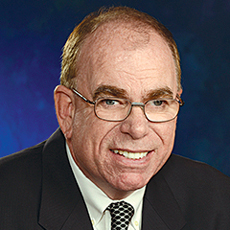
I have seen the future of Medicare. Here’s what you can expect: Demand will grow the program; fiscal realities will shrink your share.
To be sure, such an outcome will be a mixed blessing. On the one hand, it’s nice to know that more customers — or at least more potential customers — may be on the way. On the other, being viewed as the persona non grata of eldercare services kind of sucks.
In recent years, we have seen a huge federal push to deliver “value driven” post-acute care. No harm in providing more value. After all, Medicare is larded with fraud, waste, inefficiency and bizarre incentives. But the current effort often feels less like finding value than a loss leader.
Just recently, the feds approved supplemental benefits Medicare Advantage plans may offer. Talk about getting tossed a bone. Speaking last month at an America’s Health Insurance Plans conference, Seema Verma, the head of the Centers for Medicare & Medicaid Services, said the expansion marks “one of the most significant changes made to the Medicare program.” She predicted participating insurers will expand what’s covered in the coming years, as they compete for business.
Already, quite a few plans are promising obvious things. These include chore assistance, transportation to medical appointments, bathroom grab bars, home-delivered meals and wheelchair lamps. It’s probably a safe bet that others will dangle aides who can help with dressing, eating and other routine activities. Still others may promise docs who make house calls. After all, there are more than 3,700 plans across the nation.
Good for insurance companies? You bet. Good for Medicare Advantage policyholders? Maybe. Good for skilled care operators? Not so much.
Barring collapse of the Medicare Advantage Plan market, this is unlikely to be a temporary fad. Two drivers explain why. The first is cost. You don’t need to be an actuary to see that Medicare is on a collision course with insolvency. As things now stand, the program is expected to run out of money around 2026, give or take.
The other reason? People would rather stay put when possible. Facility-based skilled care has always been a needs-based service. If placement in a nursing home can be delayed or denied by home care, most people will gladly pick what’s behind door number two. And you can be darn sure the Medicare Advantage plans will gladly do the same.
Of course, all of this is just one man’s opinion. If you don’t like these predictions, you can always listen to a different forecast. But a better option might be to get ready for some stormy weather, just in case.
John O’Connor is McKnight’s Editorial Director.




